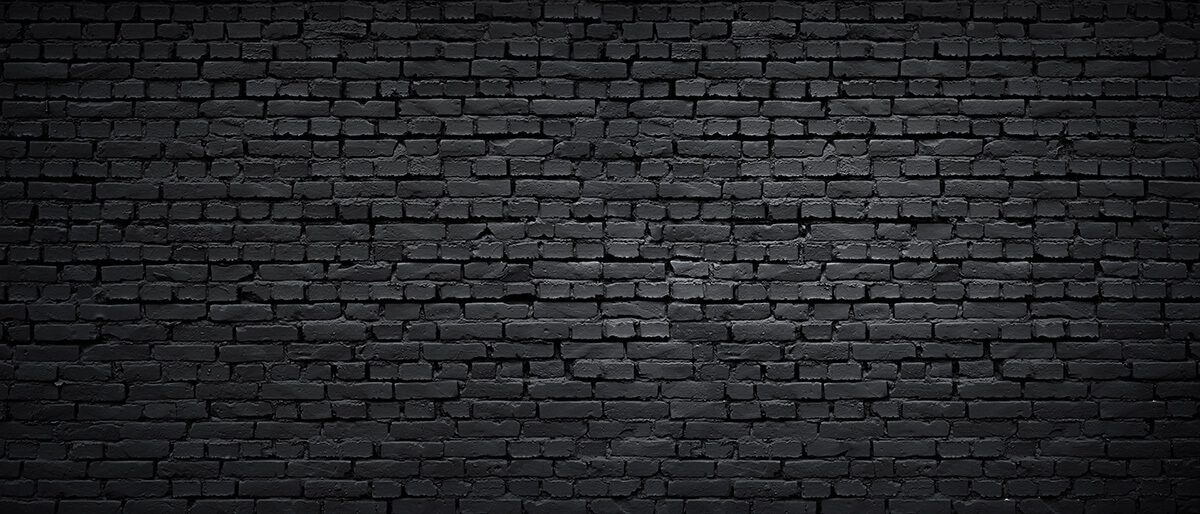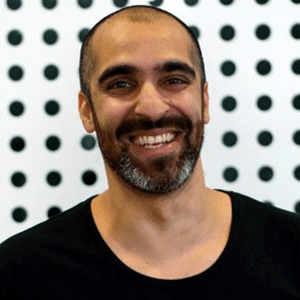

#19: What is mental toughness and how does it affect your performance?
As a peak performance coach, Gaj Ravichandra assists individuals, sporting teams and educational institutions to enhance and maximise their potential and performance.
Research has shown that mental toughness is 3 times more impactful than academic ability and performance in terms of success and happiness.
In this podcast, Gaj applies four critical components of the Model of Mental Toughness developed by AQR.
Stephanie: Today my guest is Gaj Ravichandra, the co-founder and managing partner of Kompass, which is a global talent management consultancy, and Gaj specialises in enabling performance excellence for individuals, organisations, and educational institutions as well.
Gaj is a psychologist and a leadership and career specialist as well as a keynote speaker. He says that he is passionate about the improvement of people and as a registered psychologist for over 20 years’, Gaj has worked with organisations to formulate and deliver on solutions that enhance talent management initiatives.
Gaj and there’s are some jargon and welcome to TEC Live.
Gaj: Thank you for having me. It’s wonderful to be here.
Stephanie: Yeah. So first of all, you don’t have to tell the whole story, but you will recognise the other day you’re actually a famous person on TEC Live. Tell us what happened.
Gaj: No, I think I’d put a post up on the Life Of An Entrepreneur and that had been observed by a few people and as I was paying for the bill, the individual had-
Stephanie: You were in a cafe?
Gaj: In a cafe, and they’d read that particular post and it had struck a chord with them. And they had one of those mini celebrity moments where we took some pictures together and it was fantastic. That’ll never happen again, but it was great.
Stephanie: Oh, it’s good now it’s recorded and everyone can hear about it. So we last worked together in April, 2008. What have you done since then?
Gaj: Been doing some really interesting things, I think. A lot of it has been revolving around this work around mental toughness and partly that’s around how do we get people from where they are to where they want to be. And of course we all have challenges and we all have obstacles that come in our way and it’s about identifying what those things are and how do we play on our strengths and try and optimise them to try and get to the outcomes that we want to get to?
So in 2008, I went to the desert in the Middle East, was really taken by Sheikh Mohammed bin Rashid Al Maktoum’s vision, 2020 vision at the time, which placed three out of the top five key pillars for the growth for the country as people related, which I’d never seen before. That kind of emphasis on people and development. And so, went there, took my family, had some wonderful experiences working in various international consultancies and then set up Kompass in sort of 2013, and I’ve grown that and now sort of operating across sort of four or five continents at the moment, which is great.
Stephanie: Where do you live?
Gaj: On a plane-
Stephanie: Yeah, that’s great.
Gaj: So I spend half the time in Sydney and half the time, probably about a quarter of the time, in the Middle East and the rest traveling to other places.
Stephanie: Interesting. Very interesting. Okay, so let’s get into mental toughness. You came across a model of mental toughness. Tell us a bit about the model.
Gaj: Yeah. So the model itself was created by an independent group of researchers out of the UK called AQR. And what they had been doing for 20 years is trying to understand what were the key elements of mental toughness and how was it resilient to other sort of key terms that people were looking at, like grit and resilience and so forth. And so they started understanding that they were these four critical components to mental toughness, commitment, challenge, confidence and control. And those four factors resulted in having significant impact on people’s performance and ability.
And to get a sense of that, they started looking at academic ability versus these components of mental toughness in terms of success and happiness. And what they found is that academic ability accounts for about 7% of your chance.
Stephanie: 7%?
Gaj: Yeah, and happy. Mental toughness accounted for over 25%. So they said, ‘Why are we not talking about this? This conversation of mental toughness when it’s more than three times more impactful than academic ability and academic performance?’ So that started to become a driver for them. They wrote a book I think in 2012 or 2011, I found that book randomly in a Kinokuniya store in Dubai. And at 2:00 in the morning, I wrote an email to the publishers to saying, ‘Can I please meet with these people? This is phenomenal.’
And so within a week we were having a conversation in Dubai. They happened to be there in a conference.
Stephanie: Wow!
Gaj: So yeah, that’s the story behind it. I think really the elements are empirically solid. We love the science behind it-
Stephanie: We love the science.
Gaj: It’s so critical.
Stephanie: So let’s go into the elements because when you talk about, and I have heard you talk about the model, emotional intelligence comes to mind as far as control. Where’s the crossover do you think?
Gaj: Yeah, so emotional intelligence in a lot of ways is really connected to the control piece and we have a particular scale factor there called emotional control. And it’s about choosing the right emotion at the right time, at the right intensity. And so being able to do that effectively allows you to be much more successful in terms of not only the thought processes of managing a situation, but also then post that situation, how you deal with that.
And so that was really interesting from that perspective. And so that fits also into this other piece on control, which is about life control. Do you believe you are genuinely in control of your life? Can you control your destiny or are you leaving it up to fate to kind of do that for you? We use the analogy of being a bus driver or a passenger and I think in a lot of ways sometimes we choose the role of a passenger and sometimes it’s okay to do that. And in other situations, we do want to be driving our destiny and not blaming things like the economy or the mood of the CEO or what the reserve bank has decided to do that month. What is in our control that we can be impacting positive change in our own lives?
Stephanie: So what would be the circumstances that someone perhaps who has high mental toughness and a good sense of control might choose to take the passenger role in their own life?
Gaj: Might be situations where you want to step back and allow perhaps people you delegate responsibility to, to actually take control of a situation or a meeting or a presentation. There might be situations where you’re trying to observe people at a client discussion where you want to step back and kind of then be more of a passenger. Maybe it allows you the time to reflect and to think about what has been happening rather than being on the front foot in all situations. Try to think slightly differently about the context on what you’re trying to achieve in that moment.
In Gestalt psychology, do you want to get too deep.
Stephanie: Okay.
Gaj: You can create a space for yourself and that’s really important. And whether you’re a leader, whether it’s about self-leadership, leading a team, leading an organisation, we inherently are bad at creating spaces for ourselves to think and reflect, we’re caught up in all this stuff that’s happening around us. And so any opportunities to do that can get you to perhaps at some point to be a little bit of a passenger, to reflect on things, to not be on the front foot on all occasions. It doesn’t mean you’re losing control, but it just might mean that you’re not being as assertive as you need to be.
Stephanie: So it’s about being intentional, isn’t it?
Gaj: Absolutely.
Stephanie: Not letting it take over whatever the context is, take over and overwhelm you. It’s about being very clear, I need to step back here and think about it.
Gaj: Absolutely.
Stephanie: So let’s talk about some of the other elements of mental toughness then. What would it look like for example, if I was low commitment or one of my team is or my team as a whole, sort of skews towards like commitment? What’s that going to look like?
Gaj: So for me, commitment is about delivering on promises. We make promises all the time and I think it’s this interesting language we use in corporations where we say accountability. It’s a very mechanical word-
Stephanie: Yeah.
Gaj: Instead of accountability, imagine if we replaced it with promises, it becomes almost very personal.
Stephanie: I do what I say I’m going to do.
Gaj: Absolutely. I deliver on what I promise I’m going to deliver on. And so that brings a sense of personal responsibility to whatever it is. And so in that context, someone with a low preference towards commitment would be somebody who perhaps isn’t necessarily goal oriented, they might be a bit loose when it comes to doing their work. They come in, fluff around with some papers, they are perhaps late to meetings, they don’t necessarily value the time for themselves and other people, they don’t necessarily deliver on time in terms of deadlines, they see those as movable feasts that can be manipulated.
Stephanie: Yeah.
Gaj: So somebody around that needs to have a mindset that really says, ‘Well, what is the impact of me demonstrating to other people that I am not delivering on my promises? What is the message that I’m sending to the audience, whether it’s my manager, my team, the organisation, my customers?’ And so that is really critical in that sense of reflection and self-awareness, which probably runs through all four of these factors, we have that self-awareness and the opportunity for us to gain that insight, we’re really restricted in lots of ways.
Stephanie: Yeah, that’s good. That’s really interesting. The other one is challenge. So how important is that then to an overall picture of mental toughness?
Gaj: Challenge is so vital and part of that is because we are constantly faced with more challenges and I’m yet to hear a CEO tell us that there’s less challenges they’re expecting next year.
Stephanie: Yeah.
Gaj: This is not going to happen.
Stephanie: Yeah, that’s right. It’s just going to be cruisey. We’re looking forward to…
Gaj: We’re going to nail it.
Stephanie: Midnight, first of Jan. Easy, yeah.
Gaj: So there’s that sense of overcoming challenges and the mindset you use. And it was interesting, I was listening to a song on the way here to the studio and the song is a Motown song from The Temptations, My Girl-
Stephanie: Yep.
Gaj: And it starts off-
Stephanie: Lovely song.
Gaj: It’s awesome. I was going to sing it for you!
Stephanie: We’ll sing it together.
Gaj: Absolutely. It’d be a disaster.
Stephanie: Yeah.
Gaj: So the words are, ‘I’ve got sunshine on a cloudy day. When it’s cold outside, I’m in the month of May.’
Stephanie: Of May. Yeah.
Gaj: And this mindset, to choose your reality, to overcome a problem or a challenge by saying, ‘I’m going to turn the problem into an opportunity,’ we use that word probortunity-
Stephanie: You do, I don’t.
Gaj: Every problem has an opportunity-
Stephanie: Yeah.
Gaj: So what is it that we can be doing to kind of change the way that we look at this challenge?
Stephanie: Is that kind of how you frame it?
Gaj: Absolutely. It’s the lens that we choose to use, right?
Stephanie: Mm-hmm
Gaj: So that is critical. And so what we tend to find with a lot of low to medium performers is that the way they look at challenge is very different to how a high performer looks at challenge. Because typically they’re facing the same problems.
Stephanie: And how does a high performer look at it?
Gaj: A high performer looks at the opportunity and they look at it a couple of ways. They might say, ‘Well, if I do this, what am I going to get from this exchange? There’s a whole bunch of inputs that are going to give me some outputs. Are the outputs worth it?’ The second thing they might do is they might say, ‘Well, it’s going to be hard. I’m going to face some reality around this and what do I need in terms of support to allow me to meet this challenge? Because that support is something that I could get from my manager, could be resources or budget that I need to have allocated, maybe it’s some technology that could make my life a bit easier, maybe it’s even just the customer that needs to have some clarifications made about what this challenge is and what it means for them.’
So it’s the combination of those things that is kind of going on typically in the minds of a high performer where they do reframe it as you’ve said, and they kind of look at things a little bit differently, but that’s their choice, they kind of make that opportunity to do that. And one of the other things which is interesting and I was reading about actually a couple of days ago, is something called activation energy, which is this idea that when you focus on a task and it’s a problem, if you actually do things around you that allow you to focus on that task with the first three to four minutes, it actually gives you a higher chance of completing that task. You usually get broken in overcoming a challenge or a problem because you lose your focus on things.
Stephanie: And so what are the things that you need to have around you? Does that differ from person to person or there’s things you should do? Do I have to clean up my desk first?
Gaj: Well, it’s interesting. For some people, clutter is helpful, right?
Stephanie: Yeah.
Gaj: We go into an accountant’s office and sometimes see absolute chaos, but they know exactly where the file is, they know where to locate things. So what’s one person’s clutter is another person’s order. And I think that’s part of the interesting challenge here is that we’re all different. Some people like music in an open plan office, some find it a massive distraction. And so finding out what those techniques are, are so different because we are so different. The environment impacts our personality so differently. We constantly apply blanket rules.
Stephanie: That’s interesting. So I’m thinking of when I have to have a specific output like a board report, and I tell people and we’ll make a joke of it, ‘No one interrupt me. I’m doing this thing,’ but that’s what I do. It’s telling people, closing the door, sitting down and doing it and then it gets done.
Gaj: Absolutely. And it’s that time. And so therefore the activation energy principle says, ‘Look at the things around you that typically cause you distraction.’ If it’s an email, is your phone. So make it harder for you to access your emails. So for example, shut down your Outlook or turn off your computer because you know it’s going to take you four minutes to boot up your computer. So actually I don’t need my emails right now, I’m going to focus on this task.
So you work out what is the energy that I need to activate a positive mindset to overcome this challenge and increase the amount of energy I would need to be distracted, which is kind of interesting. So you make it harder for you to actually get distracted-
Stephanie: Yeah, right. I love that. So the fourth C, can you teach someone to be confident? I agree with you that personalities are preference and if I have a very strong preference away from confidence or whatever adds up to confidence, can you learn it?
Gaj: Yeah. So confidence is a choice in a lot of ways. It’s not really talked about in this way. So we all have a baseline of confidence in which we operate in and what we tend to find is that that then has a consequence. So if we demonstrate low confidence in certain environments, that then has an impact on other people around us and they therefore react in a particular way. So choosing for some people to behave that way actually serves them. And so we tend to behave and continue to behave in that way.
There are some people who like to be victims because it serves them in some way. They get attention or there might be other things that they benefit from, and so they will demonstrate potentially low confidence even subconsciously without being aware that it’s happening because they’re getting something in return.
We as humans do this, right? We behave in a way because we do get something in return from that behaviour. Now to improve the confidence, absolutely, there are some principles that we can learn. And confidence in the model that we’re talking about is really linked to interpersonal confidence, which is about standing up for what you believe in a group type environment, but also there’s around confidence in your abilities. I do believe you have the knowledge, skills and abilities to do your job and if you don’t, do you have the knowledge to find out what those things are?
And so that is also a sense of empowering somebody to feel like you are in control and you can see some of the links coming back between each of the factors as well. And so if you feel that having more confidence is going to help you to be able to achieve better outcomes, you’re more likely to kind of look at opportunities and strategies in which to do that. But if you’re not convinced that that’s going to be the case, it’s a much harder sell, and this is what we tend to find.
Confidence for me is the foundational piece of all of this. And so without that sense of confidence, it’s hard to then extend more control in the things that you do to overcome more challenges in the belief that you have of yourself to be able to commit to things at a more serious level.
Stephanie: If you don’t really believe you can do it, you find the light.
Gaj: Yeah, it starts with yourself.
Stephanie: So there’s a theme through all of that. When I’ve been listening to you talk about this, is choice is really a big part of it that I’m hearing you saying. As a person, it’s my choice how I’m going to approach each of these areas of mental toughness.
Gaj: Absolutely. I heard this fantastic quote the other day which was, ‘Good choices result in a good life. Great choices result in a better life. Bad choices result in a poor life.’
Stephanie: Yeah.
Gaj: And not poor in terms of monetary but poor just in terms of options and situations. So absolutely, those choices that we make can dictate the outputs in a lot of ways and it’s about us taking ownership. I love that.
Stephanie: Yeah. That’s a big theme of it, isn’t it? Which really appeals to me, that kind of ownership angle of mental toughness. So with all of that in mind, as a leader, if I’m looking at my team and I think there’s a challenging mental toughness and it might be shown by the way that the team responds to setbacks, that there’s a setback, they’ll take it to heart or it really throws everyone’s confidence because it was a big setback. What can I do as a leader about that?
Gaj: Yeah, so there are probably a number of things that a leader can do. Firstly is to understand and to explain the situation and to get a real sense of what people are feeling and thinking. You know that cognitive cycle we have of the behaviour that people might show of disengagement and disempowerment, it’s usually linked to the feelings that they have and those feelings are driven by their thoughts.
So if a leader understands what their people are thinking, then they have a much more stronger ability to build and influence those thoughts which they influence their feelings and influence their behaviour in the right way. So if we get a sense of what is actually the thought that is taking place in the heads of our people, that can help us to understand what’s going on. And then it’s about setting up some interesting challenges or goals for them that are achievable and realistic that might make them a little bit uncomfortable. We call this living in the discomfort, right?
Stephanie: Yeah.
Gaj: How are we going to still allow ourselves to be able to be a little bit uncomfortable, to be able to step up and do what we need to do? And so that is a critical piece. But then it’s also then the regular support. And one of the big frustrations that a lot of employees face and one of the things that comes out continuously in these engagement surveys that are coming out each year is the perception of the lack of support from their leaders.
So yes, you’ve given me a goal, you’ve given me a target to achieve, but what’s your stake in this? How are you helping me and supporting me in being able to do this? Yes, I know I have the knowledge, skills and abilities to achieve this challenge but I also need the right support to enable this to happen. And so that is a massive factor, as well the perception of the support, and asking your people, ‘What do you need from me? What’s going to make the difference? If I could change one thing today about how I interact with you guys, what is it going to be that’s going to change the opportunity for you to achieve the results that you want?’
Stephanie: That’s good. I was just thinking when you were talking about, that’s assuming that everyone’s the same. Because if I’ve got a team and they’ve got various levels of confidence, various levels of insight, what’s the risk of taking one approach for the whole team?
Gaj: Oh, great question. Is there’s a significant risk and the risk is that our personalities are so different that once we actually get to a point where we are pushing little buttons of our personality, we don’t necessarily as leaders realise that when that button is pushed it is having an impact on another set of personalities. And that’s the research that has been coming out.
Stephanie: And it’s pretty recent, isn’t it?
Gaj: Absolutely. A couple of months ago, Florence’s paper was published looking at this meta-analysis. Was a group study of personalities and how it links to the dark triad of personality, the Machiavellianistic, the narcissistic and psychopathy, but also mental toughness. And what it found was that we simply cannot apply blanket training and learning and development initiatives across an organisation because we think that is trying to improve a particular competency and it’s relevant for everybody because it’s not. Everyone reacts differently.
It’s like serving the same food to everyone. It’s going to gel well with some people. Some people are going to have an anaphylactic reaction to it. Some people are going to walk away, they’re not going to be interested. So in the same way we need to look at what is the buffet of options, buffet, buffet-
Stephanie: Buffet will do
Gaj: Of options that we are going to have to use to make sure that we are a little bit more targeted in our approach-
Stephanie: This is game-changing, isn’t it? As far as training programs go.
Gaj: It is. It’s going to shake the world of training-
Stephanie: And be interesting to see how people respond to that because in a past life we would have had people coming to us saying, ‘Can you do resilience training for my organisation?’ We were chatting on the way over about… something on the ABC this morning about an organisation doing resilience training and mindfulness for young children. But that’s kind of one size fits all, isn’t it?
Gaj: Yeah, absolutely. So there is an inherent issue with that. And so just being mindful of the mindfulness training and what is the impact on children and ensuring that we’re not giving a blanket approach that is too deep. So there is probably a superficial level of training that might be effective for everybody that isn’t necessarily going to have a massive impact on the buttons that we’re pushing. But if we really want change and we want students in particular or employees to have that change and to buy into that change, we are going to have to go deep. And to do that, it has to be more tailored. It cannot be 25 people sitting on a course expecting them all to take away exactly the same things, that they’re going to go back into the office tomorrow and start applying. And it’s becoming very clear now as to why that has not been happening for decades and decades and decades.
Stephanie: Because individuals have different personality preferences, different levels of mental toughness. It’s complex.
Gaj: Absolutely.
Stephanie: I can’t let you go without touching on the dark triad because you have.
Gaj: Whoops!
Stephanie: No, it’s okay. So tell us a little bit about it.
Gaj: Supposedly they’re actually increasing it to the dark tetra.
Stephanie: No.
Gaj: So they’re going to include sadism. Can you imagine? It’s just getting really dark.
Stephanie: Yeah, it is dark.
Gaj: It’s the Darth Vader option
Stephanie: Yeah.
Gaj: So the idea is that as a leader, we need to demonstrate certain extreme versions of our personality to sometimes get the most out of our people. And so what we tend to find is that in the leadership levels, that one in 10 according to the research, one in 10 people demonstrate these psychopathic tendencies. It’s three in 100 in the general population. It’s one in 10 in corporate. And so-
Stephanie: Neither of us though.
Gaj: No, no one in this room.
Stephanie: No.
Gaj: Absolutely.
Stephanie: No.
Gaj: So one of the interesting things is, are they all bad? Is it actually negative in a way or deconstructive to have these behaviours? So let’s look at narcissism and this is about the sense that I can do everything and it’s about me and the sense of ego and confidence. Confidence is massively correlated to being narcissistic.
Now, if you are narcissistic with the single intention of helping yourself and yourself only, agreed, it is perhaps not the best strategy to use as a leader. But if you’re doing it in a way that demonstrates a sense of community, a sense of tribe with your people, where you’re bringing people together against your competitors, against the challenging situation or the environment that you’re in, perhaps that could be a benefit to helping them and to helping your customers to get the best outcomes.
When you look at Machiavellianism, it’s about the strategic manipulation of people to achieving your goals. If it’s about the goals of the organisation and achieving a vision, there are lots of organisations out there that do some wonderful things about achieving much more bigger or larger vision or goals than just themselves. So what can we do to positively manipulate the people in our teams, our customers and our shareholders? I mean, it’s a terrible thing to think about.
But we do it all the time. We plot certain information that allows certain people to perceive the right way of acting or behaving to get the outcome that we think is in the greater good. So that can be quite helpful.
Stephanie: There’s so much in this, there’s so much in this, but there’s some really interesting themes and one is what you’re naturally like and what you’re predisposed to and self-awareness is a really important part of that, isn’t it? Then the choices that you make about how you’re going to approach a situation, the way you manage your team as a leader keeping in mind that there’s individuals. And at times to really affect significant change, you need to go deep, you can’t just assume a one-size-fits-all training program to fix things up.
So in wrapping this up, I know that I’ve heard you saying, ‘I think it’s very important that mental toughness is all about, ‘What am I going to do next?’’ When you’re faced with some challenge, big or small, it’s about the bounce, as Brene Brown says, it’s about what’s next, what comes next, and that sums up your approach.
Gaj, that was really good and interesting conversation. Thank you so much for your time.
Gaj: My pleasure. Thank you for having me on.
Stephanie: So that’s TEC Live for today, CEOs are in the business of making decisions and leadership is the art of execution. I’m Stephanie Christopher, and look forward to talking to you next time.



